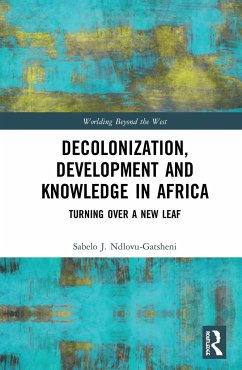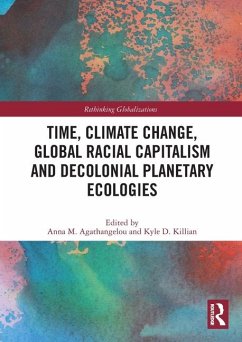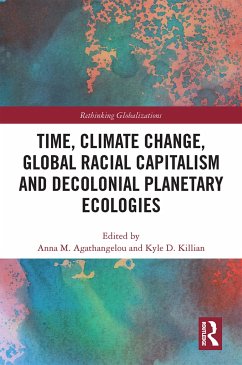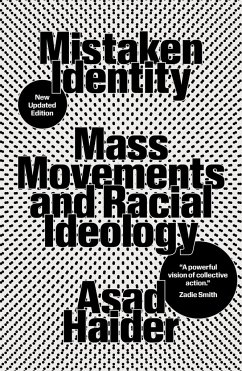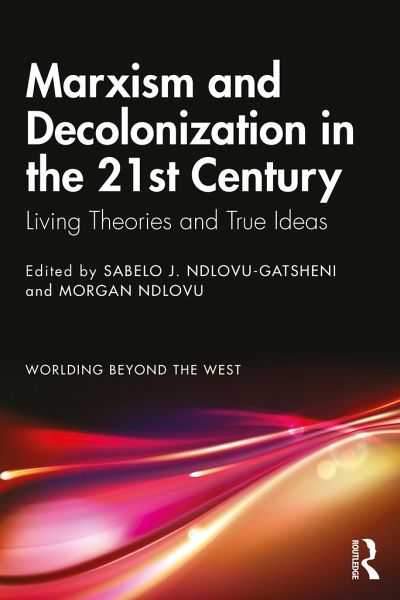
Marxism and Decolonization in the 21st Century
Living Theories and True Ideas
Herausgegeben: Ndlovu-Gatsheni, Sabelo J.; Ndlovu, Morgan
Versandkostenfrei!
Versandfertig in 6-10 Tagen
42,99 €
inkl. MwSt.

PAYBACK Punkte
21 °P sammeln!
Marxism and Decolonization in the 21st Century is a ground-breaking work that highlights the resurgence and insurgence of Marxism and decolonization, and the ways in which decolonization and decoloniality are grounded in the contributions of Black Marxism, the Radical Black tradition, and anti-colonial liberation traditions.Featuring leading and young scholars and activists, this book is a practical scholarly intervention that shows how democratic Marxism and decoloniality might converge to provoke planetary decolonization in the 21st century. At the centre of this process, enabled by both inc...
Marxism and Decolonization in the 21st Century is a ground-breaking work that highlights the resurgence and insurgence of Marxism and decolonization, and the ways in which decolonization and decoloniality are grounded in the contributions of Black Marxism, the Radical Black tradition, and anti-colonial liberation traditions.
Featuring leading and young scholars and activists, this book is a practical scholarly intervention that shows how democratic Marxism and decoloniality might converge to provoke planetary decolonization in the 21st century. At the centre of this process, enabled by both increasing human entanglements and the resilience of racism, the volume's contributors analyse converging forces of anti-imperialism, anti-colonialism, anti-patriarchy, anti-sexism, Indigenous People's movements, eco-feminist formations, and intellectual movements levelled against Eurocentrism.
This book will be of great interest to students, scholars, and intellectuals interested in Marxism, decolonization, and transnational activism.
Featuring leading and young scholars and activists, this book is a practical scholarly intervention that shows how democratic Marxism and decoloniality might converge to provoke planetary decolonization in the 21st century. At the centre of this process, enabled by both increasing human entanglements and the resilience of racism, the volume's contributors analyse converging forces of anti-imperialism, anti-colonialism, anti-patriarchy, anti-sexism, Indigenous People's movements, eco-feminist formations, and intellectual movements levelled against Eurocentrism.
This book will be of great interest to students, scholars, and intellectuals interested in Marxism, decolonization, and transnational activism.





